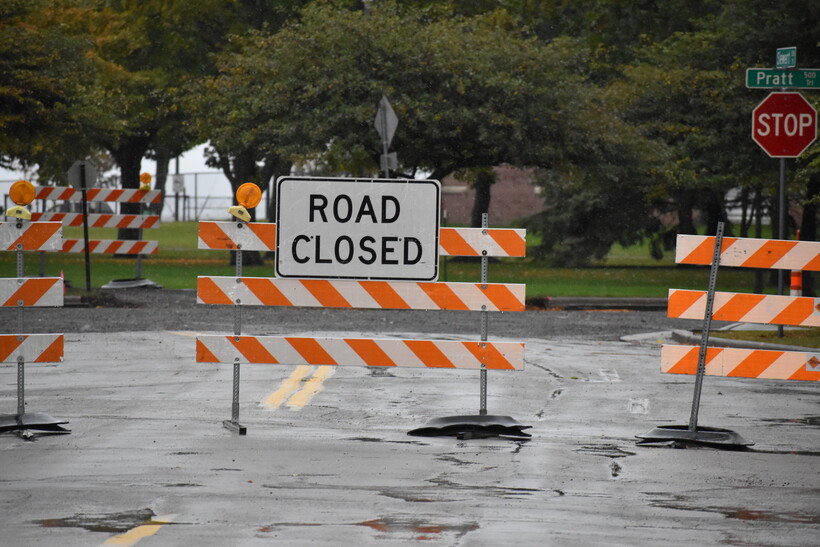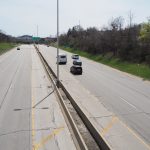Native American Village Unearthed in Oshkosh Road Project
UWM archeologists are working to document the site.

Menominee Park’s Pratt Trail in the city of Oshkosh is closed while archeologists work to document a centuries-old Native American village discovered on the site. Joe Schulz/WPR
A road construction project in Oshkosh led to the discovery of an ancient Native American village that dates back centuries.
The city has been working to reconstruct a road at Menominee Park since August, but the project has been delayed due to archeological work on the site.
During the removal of the existing road bed, UW-Milwaukee confirmed that a historic Native American village that dates back to between 900 A.D. and 1600 A.D. had been preserved underneath the road. Now, researchers are documenting the cultural features that have been exposed.
Jennifer Haas, director of the Archeological Research Laboratory Center at UW-Milwaukee, said ancient Native American villages are found across the area on the northwest shore of Lake Winnebago.
She said it’s very difficult archeologically to link evidence found in the park to today’s tribal nations. But she said the Menominee Park area is within the aboriginal homeland area of the Menominee and Ho-Chunk nations.
“During the historic period, Potawatomi groups were also moving to the area,” Haas said. “There would be a number of current tribal nations that would have a connection to this area.”
Haas said it’s still too early to paint a clear picture of what the park looked like centuries ago. But she said other villages along Lake Winnebago have shown that homes were varied, typically oval-shaped and often had areas either within or outside that were used for processing food.
Some of the materials that were common from those sites include ceramic pottery used for food storage and cooking, as well as stone artifacts like knives and other tools, she said.
The plan for the site, developed in coordination with state agencies and tribal nations, includes in-place preservation of “social features” of the site, Haas said. When they finish documenting the site, she said the plan calls for the road project to continue.
“We’re not excavating those features, and we’re not recovering quantities of cultural items,” she said. “For this project in particular, we’ll really try to preserve in-place, so those important deposits and features related to the village site will remain where they’ve always remained.”
For the few cultural artifacts that have been found, Haas said they may remain under the control of the city of Oshkosh, but UW-Milwaukee has the capacity to preserve cultural items within its archeological repository.
The city of Oshkosh is asking visitors to respect the restricted areas of the park to ensure archeologists can complete their work. The city said the area is under surveillance to make sure people follow federal laws prohibiting unauthorized entry.
“It’s just important to follow those rules and, in this case, let the archeologists do their work, so that we can get this done as quickly as possible,” said city engineer Justin Gierach. “In general, you have to be cognizant of everyone’s ancestors. We’re all part of one tree in one shape or another, maybe different branches, but we all have to be cognizant of historical preservation of what’s been before us.”
He said the city doesn’t have a firm timeline on when the project will be completed, but he expects the road to be closed through winter and hopes to complete the project in spring.
Listen to the WPR report here.
Centuries-old Native American village unearthed in Oshkosh road project was originally published by Wisconsin Public Radio.
If you think stories like this are important, become a member of Urban Milwaukee and help support real, independent journalism. Plus you get some cool added benefits.
















